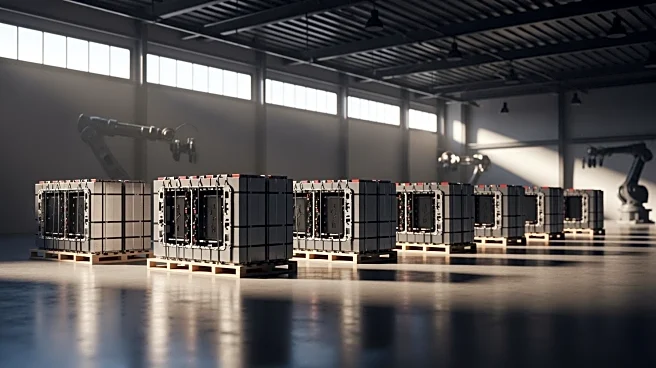Rapid Read • 8 min read
GrayMatter Robotics is set to present five key strategies for deploying AI-powered robots in manufacturing at RoboBusiness 2025. Dr. Satyandra K. Gupta, co-founder and chief scientist of GrayMatter, will discuss the importance of strategic planning, understanding challenges, and internal advocacy for successful automation deployment. The presentation will emphasize the need for an automation champion, optimizing workflows, and redesigning processes to leverage robots' strengths. Gupta will also address calculating return on investment beyond labor savings and the significance of workforce readiness. GrayMatter Robotics is recognized for its Scan&Sand technology, which efficiently handles complex geometries in high-mix manufacturing.
AD
The deployment of AI-powered robots in manufacturing is crucial for enhancing productivity, quality, and cost efficiency. GrayMatter's strategies aim to overcome common challenges faced by companies transitioning from pilot projects to full-scale automation. Successful implementation can lead to significant improvements in manufacturing processes, offering competitive advantages in terms of efficiency and innovation. The focus on workforce readiness highlights the importance of equipping employees with the skills needed to work alongside advanced technologies, ensuring long-term success and sustainability in the industry.
RoboBusiness 2025, scheduled for October 15-16 at the Santa Clara Convention Center, will feature Dr. Gupta's presentation on the second day. The event will include over 60 speakers, a startup workshop, and the annual Pitchfire competition, providing numerous networking opportunities. More than 100 exhibitors will showcase their latest technologies and services, offering solutions to robotics development challenges. The conference will be co-located with DeviceTalks West, attracting professionals from healthcare and medical technology sectors.
The integration of AI in manufacturing not only enhances operational efficiency but also raises ethical and workforce-related considerations. As automation becomes more prevalent, companies must address potential job displacement and ensure equitable access to training and development opportunities. The shift towards AI-driven processes may also influence regulatory frameworks and industry standards, necessitating ongoing dialogue between stakeholders to balance innovation with societal impacts.
AD
More Stories You Might Enjoy












